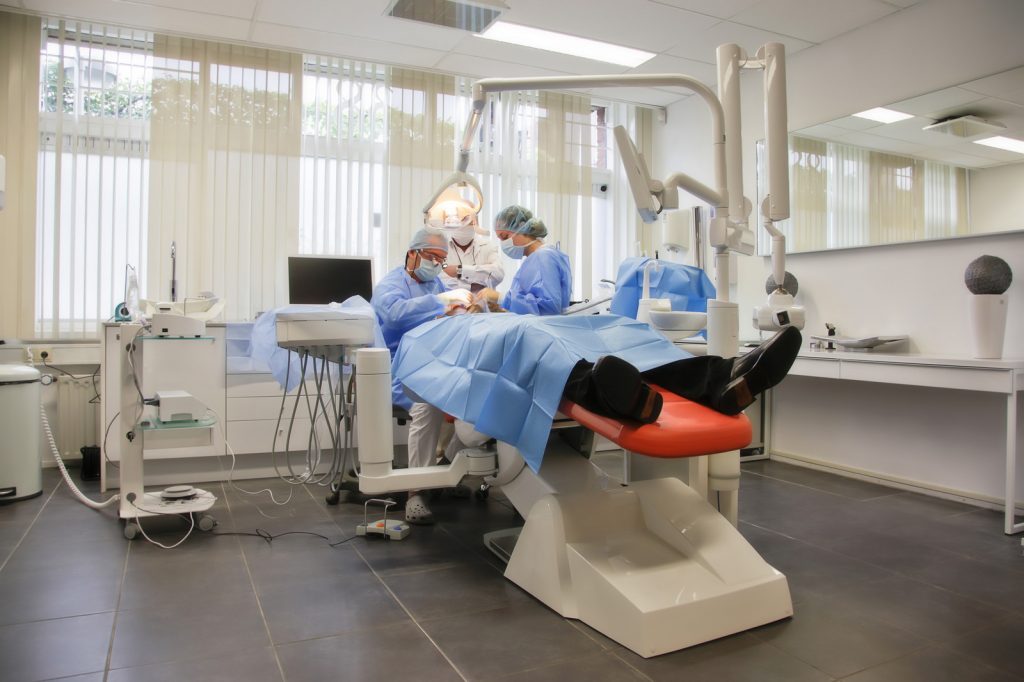Tooth extractions are a common and routine dental procedure. Dental extractions in Yellowknife are performed for several reasons, including severe tooth infections, severe periodontitis (gum disease), injury or trauma, overcrowded teeth, impacted wisdom teeth, or to accommodate dental implants.
Simple extractions
An uncomplicated extraction is usually performed with dental implants called an elevator and forceps. Your dentist will use the elevator to grip and wiggle the tooth loose, then use the forceps to grip and extract the tooth from the jaw. Most commonly, a simple extraction is performed under local anesthesia to numb the affected area and to keep you comfortable, though awake and aware.
If you’re having several teeth extracted or if the patient is a child, dental extractions in Yellowknife may proceed under general anesthesia.
Surgical extractions
In more complex cases such as the removal of a molar or if the tooth is impacted (such as a wisdom tooth that is trapped beneath a molar at least in part), a dentist in Yellowknife may conduct a surgical extraction.
In a surgical extraction, the surgeon will make an incision in the gum over and/or around the affected tooth so that they can cut away the gum and bone tissue surrounding the tooth being extracted. Once access to the tooth has been achieved, your dentist will use forceps to wriggle and loosen the tooth, then to pull the tooth away. In some cases, the tooth can not be removed in a single piece. In those cases, the tooth will be broken into several pieces, each removed one at a time.
Due to the complexity of surgical extraction and the more invasive procedures, surgical dental extractions in Yellowknife are often performed under general anesthesia. Once the tooth has been successfully extracted, your dentist will ensure that a blood clot has formed in the pocket to prevent uncontrolled bleeding and to reduce the risk of infection.
How to ensure a complete recovery
Before you leave the office of your dentist in Yellowknife after an extraction, you’ll receive detailed instructions about how to care for your extraction site to ensure you recover completely, quickly, and without any complications. Many of those instructions will be focused on preserving the blood clot that develops in your extraction site. If that blood clot becomes dislodged, you may experience a painful condition called dry socket. By following your dentist’s instructions carefully, and the following seven general recommendations, you can expect to recover fully within seven to 10 days.
- Don’t remove the gauze pad placed by your dentist until instructed to do so, and certainly not for the first four hours after the extraction.
- MInimize physical activity and exertion for two days after your extraction; focus on resting and relaxing
- Because smoking suppresses your immune system and slows your healing processes, don’t smoke until you’ve healed completely
- To protect the blood clot, avoid smoking, rinsing, drinking with a straw, and spitting for 24 hours after your extraction
- After 24 hours following your extraction, use a saltwater solution of warm — not hot — water to gently rinse your mouth. You can make this solution from ½ tsp of salt in a cup of water just warm enough to dissolve the salt
- To minimize discomfort and swelling, apply an ice pack or cold compress to the outside of the affected side of your face for 10 minutes, before taking it off your face for 10 minutes before repeating if necessary
- Some discomfort is normal after having a tooth pulled at a dentist near you. If the discomfort becomes distracting or uncomfortable, use over-the-counter pain medication precisely according to instructions.
To get advice about tooth extractions near you, contact a dentist in Yellowknife. While complex extractions can be stressful and all extractions should be taken seriously, rest assured that they are almost always completed without complication as long as you follow your dentist’s instructions conscientiously.
